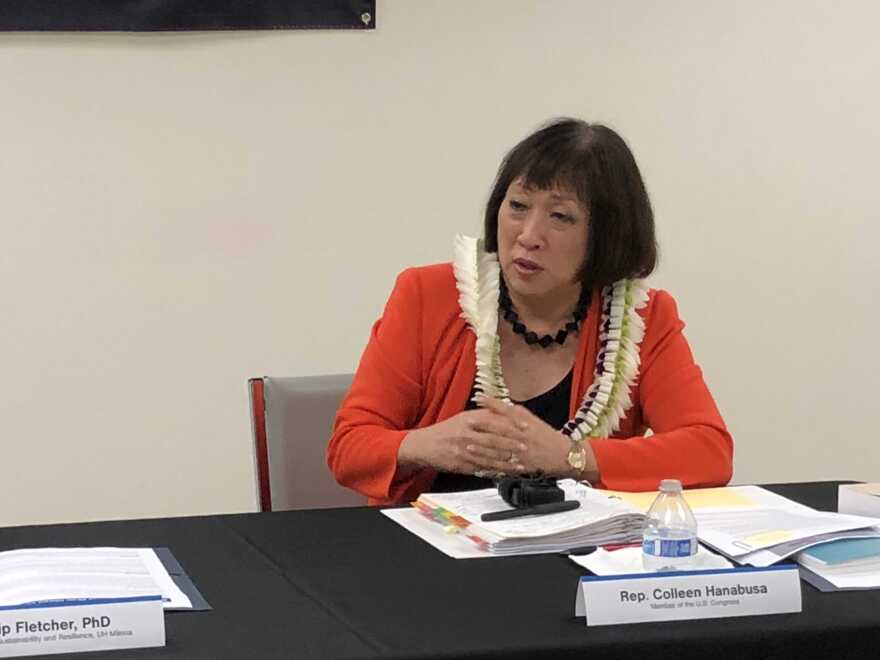A roundtable discussion on Climate Change was hosted last week by Congresswoman Colleen Hanabusa. HPR’s Wayne Yoshioka reports.

The average global temperature has risen one degree Celsius since the mid-18th Century Industrial Revolution, causing 600 billion tons of ice to melt at both polar caps. That, according to Associate Dean of the U-H School of Ocean and Earth Science and Technology…Chip Fletcher, who says rising sea levels are squeezing Hawai’i beaches out of existence.
“We have done some modeling and looked at Sunset Beach alone. Today, there are on the order of 18 homes that have seawalls. And with only one foot of sea level rise, our model suggests that’s going to jump to 110 homes. And, if we allow all these homes to build seawalls, we’re going to see the end of Sunset Beach. And the same situation will be for every other beach in the Hawaiian Islands.”
The U-S Army Corps of Engineers adopted its Ala Wai Canal Flood Risk Management Study and plans to implement its recommendations in 2025. Michael Wyatt is the Corp’s Civil Works Chief and was project manager for the Ala Wai project.
“It’s a sea wall that basically follows the Ala Wai Canal, along the entire perimeter from Ala Moana all the way up to the golf course. And, what we ended up doing, we raised it to 7.9 feet as a minimum elevation and what that would do would effectively protect Waikiki on the canal side from a significant sea level rise.”

Wyatt says the 7.9 feet is the elevation and not the height of the wall. Climate change impacts also include more hurricanes, greater rainfall intensities and more episodes of drought and high surf. Ray Tanabe is the director of the National Weather Service Pacific Region.
“If you look at the coastal areas, say, on the Island of O’ahu, and you look at the critical infrastructure -- hotels, refineries, ports, airports -- all of the things that are gonna help us recover from an extreme weather event are gonna be in harm’s way if a hurricane were to impact the island. So that’s something that we really have to consider when we talk about climate change.”
Congresswoman Colleen Hanabusa, who hosted the roundtable discussion, says the time is now to discuss climate change.

“The Office of Management Budget and the Council of Economic Advisors have estimated that cost to the federal government as a result of climate change will increase by $12 billion to $35 billion dollars per year by mid-century”.
In my next report, what the experts say the public should do to mitigate the impacts of climate change. Wayne Yoshioka, HPR News.




